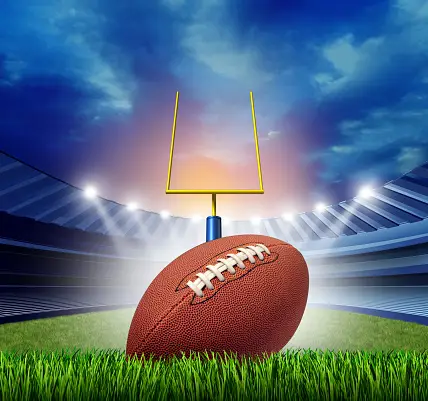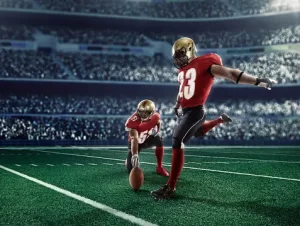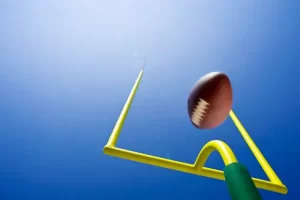Special teams in football play a crucial role in determining the outcome of a game, despite being on the field for only around 20% of the time. These units are responsible for all plays that revolve around the kicking game, which includes attempting a kick, returning a kick, or defending a kick. While they may not garner as much attention as offense and defense, their contribution to a team’s success cannot be underestimated. What is Special Teams in Football?
Comprised of both offensive and defensive players, special teams perform various types of plays such as punts, field goals, and kickoffs. When one team’s special teams unit enters the field, the opposing team matches with their own special teams as well. This unique group of players require endless hours of practice and planning, which in turn make their executions appear routine, showcasing the skills of the players and their coaches.
In summary, special teams in football are essential components of a successful game strategy, despite their comparatively smaller time on the field. Combining offense and defense skill sets, these units undertake kicking plays and significantly contribute to a team’s overall performance.
Contents
The Basics of Special Teams
Roles and Responsibilities
Special teams in football is a crucial unit that focuses on plays involving kicks and returns. Although they are only on the field for about 20% of a game, their impact can be significant. Key positions in special teams include:
- Kicker: Responsible for kicking field goals and extra points.
- Punter: Kicks the ball to the opposition during punts on fourth downs.
- Long Snapper: Snaps the ball to the holder or punter during field goals, extra points, and punts.
- Holder: Holds the ball for the kicker during field goal and extra point attempts.
- Return Men: Catch and return the ball during kickoffs and punts to gain yardage.
Blockers and tacklers from the offense and defense also bolster special teams during these plays.
Kickoffs and Punts
Kickoffs
A kickoff occurs at the beginning of each half and after scoring plays. The kicker kicks the ball from the 35-yard line toward the opponent’s end zone. The receiving team’s return man catches the ball and attempts to advance it back toward the kicking team, while blockers clear a path for him. Tacklers from the kicking team try to stop the return man, aiming to minimize the gain in field position.
Punts
Punts usually happen on the fourth down when the offense has failed to achieve a first down. The punter stands 15 yards behind the line of scrimmage and kicks the ball after receiving a long snap from the long snapper. The goal is to push the opposing team as far back as possible, making it harder for them to score. The return man from the receiving team tries to gain yardage, while the kicking team’s players aim to tackle him.
.@Max__Duffy 75-yard punt, third-longest punt in school history.@SECNetwork – https://t.co/o8ooJFwqgh pic.twitter.com/u6czrabpuR
— Kentucky Football (@UKFootball) September 26, 2020
Field Goals and Extra Points
Field Goals
When an offensive team is within range and on the fourth down, they may attempt a field goal, where the kicker tries to kick the ball through the uprights. Field goals are worth three points and require coordination between the long snapper, holder, and kicker. The defense may attempt to block the kick or, in rare cases, catch and return a failed field goal attempt.
Extra Points
After a touchdown, the scoring team has the option to attempt an extra point, also known as a point after touchdown (PAT). The kicker, from the 15-yard line, aims to kick the ball through the uprights for one additional point. Alternatively, teams can opt for a two-point conversion, where they try to move the ball into the end zone from the 2-yard line. The defensive team may also score two points by returning a failed PAT or two-point conversion attempt to the opponent’s end zone.
Special Teams Positions
Kickers and Punters
Kickers and punters are key players on special teams units in football. Their primary tasks include placekicking field goals, extra points, and performing punts. Both positions rely on accuracy and power to effectively position the ball and score points for their team. While some teams have separate players for each role, others may have a single player handling both kicker and punter duties.
Long Snappers and Holders
- Long Snappers: The long snapper is responsible for snapping the ball to the holder during field goals and extra points, and to the punter during punting plays. Their primary goal is to deliver a precise and consistent snap, enabling a smooth play execution. Long snappers are often centers who have specialized in this specific aspect of the game.
- Holders: Operating in tandem with the long snapper, the holder catches the snap and places it on the ground for the kicker to kick the ball through the uprights. Their role is crucial in setting up a proper kicking position, ideally with the laces facing away from the kicker. Holders are often backup quarterbacks or punters due to their good hands and familiarity with ball handling.
Returners and Gunners
-
- Returners: The returners are composed of two positions: the kickoff returner and punt returner. Their objective is to catch the ball from the opposition’s kick or punt and advance it up the field to achieve advantageous field position. They rely on speed, agility, and decision-making to exploit openings and avoid tacklers. Punt returners may also signal for a fair catch if they cannot make a return without the risk of a fumble.
- Gunners: Often positioned at the outer edges of the field, gunners are responsible for rushing downfield and tackling the returner during punting and kickoff plays. They must possess a combination of speed and tackling ability to prevent the returner from gaining significant yardage. Additionally, they need to avoid being blocked by the opposing team’s players.
Kick return TD ☑️
Punt return TD ☑️@KaVontaeTurpin put himself on the map yesterday with this special teams display. 😤 pic.twitter.com/njstpKAATs— NFL (@NFL) August 21, 2022
Other Supporting Roles
The remaining special teams positions include:
- Personal Protector: Positioned near the punter or holder during punts and field goal attempts, their role is to block incoming defenders and ensure the specialist has enough time to execute their respective duties.
- Running Backs (RB), Tight Ends, and Guards: These players contribute to special teams as blockers or tacklers on kickoff and punt return units. Their combination of strength and agility makes them suitable candidates for these roles, providing necessary protection for the returner and helping to contain the opposing team’s special teams performers.
Offensive and Defensive Aspects
Offensive Strategies
In football, special teams contribute to both offensive and defensive aspects of the game. On offense, the special teams often include the kicking game, which serves as a key component for points scored. Some key players involved in offensive special teams are:
- Kickoff returner: Responsible for catching the ball on a kickoff and attempting to advance it down the field.
- Punt returner: Similar to the kickoff returner, their role is to catch the opponent’s punt and attempt to advance the ball.
- Ball carriers: These include the upback in punt formations and players responsible for returning kicks or advancing the ball after a punt.
In professional leagues, special teams maneuvers aim to maximize field position and provide strategic opportunities to score. For instance, offensive linemen work together to create gaps for the ball carriers to exploit during kickoff or punt returns.
Defensive Strategies
The defensive aspect of special teams focuses on preventing the opponent from gaining favorable field position or scoring during kick returns and punts. Some crucial players in defensive special teams include:
- Kicker: Handles kickoffs, punting, and field goal attempts, aiming to place the ball in positions that make it difficult for the receiving team.
- Gunners: These players sprint down the field to tackle the returner and prevent significant gains or touchdowns on kick and punt returns.
- Defensive alignment: Special team units have unique alignments, depending on the situation, to provide coverage against potential trick plays or fake kicks in American football.
Successful defensive strategies involve limiting the opponent’s return yardage, forcing touchbacks, or causing turnovers. By restricting the receiving team’s progress, the special teams’ defense contributes significantly to the overall game’s outcome.
Key Plays and Techniques
In this section, we will discuss the key plays and techniques utilized by special teams in football. Special teams are responsible for the kicking plays, which include punts, field goals, and kickoffs. They play a crucial role in determining the game’s outcome and can either win or lose games based on their performance.
Onside Kicks
An onside kick is a high-risk, high-reward play, usually employed by the kicking team when they are trailing in points and need to regain possession. It involves a short kick that travels at least 10 yards and can be recovered by either team. The aim is for the kicking team to recover the ball before the receiving team has a chance to claim it. Here are some key aspects of an onside kick:
-
- Receiving team: The receiving team’s primary goal is to secure the ball in their possession or let it go out of bounds.
- Positions: Players from both teams line up on their respective sides of the field, with the kicking team attempting to sprint down the field and recover the ball.
- NFL Draft: Skill at executing onside kicks can influence a player’s draft stock, particularly among kickers and special teams players.
.@DallasCowboys recover the onside kick!
📺: #ATLvsDAL on FOX
📱: NFL app // Yahoo Sports app: https://t.co/gdttfTQjuY pic.twitter.com/v6qAfH46hX— NFL (@NFL) September 20, 2020
Audibles
Audibles are a vital component of special teams play, particularly in punting and kickoff situations. They involve the quarterback or the special teams captain changing the play at the line of scrimmage based on the opposing team’s formation or a perceived advantage. Here’s a breakdown of how audibles work in special teams:
- Kickoffs: The kicking team might call an audible for a surprise onside kick or a directional kick to exploit an opening in the receiving team’s formation.
- Punts: The punting team may call an audible for a fake punt, wherein the punter or an up-back runs or passes the ball instead of punting it. This can catch the returning team off guard and potentially gain a first down.
In both kickoffs and punts, the receiving team’s players – predominantly the wide receivers, running backs, and the punt returner – need to be aware of potential audibles and react accordingly to defend against them. They should keep an eye on the ball and the opposing team’s players, while still positioning themselves to secure optimal field position for their offense.
Significance and Impact on the Game
Special teams in football play a critical role in various aspects of the game, including determining the outcome and generating excitement. Comprising various positions such as punters, kickoff returners, jammers, and strong safeties, these units perform vital plays that can contribute to a team’s success or failure.
One significant impact of special teams is their ability to score points through field goals and extra points. Kickers must focus on the laces and accuracy to ensure they score, affecting the game’s outcome. Moreover, kickoff returners possess the potential to score touchdowns, amplifying the team’s momentum, and enhancing their chances of winning.
Another important aspect of special teams is their role in field position. Punters are responsible for kicking the ball as far downfield as possible, putting pressure on opposing teams’ offensive units. Additionally, the jammer’s task on the special teams is to block defensive backs, providing opportunities for positive yardage gains.
Special teams also contribute to the game’s excitement by executing surprise plays, such as onside kicks and fake punts. These plays can catch the opposing team off guard, resulting in unexpected scoring opportunities or changes in possession.
The protection of key positions like the left tackle, fullback, offensive lineman, and blind side is essential when attempting kicks. Halfbacks and defensive backs on special teams work in tandem to cover the field and ensure a successful kick or return. Their skills and effort often play a crucial role in making or breaking the game.
In conclusion, special teams play a vital role in football matches by scoring points, affecting field position, and contributing to overall excitement levels. With diverse positions and responsibilities, these units can determine the outcome of the game and create memorable moments for fans and players alike.



